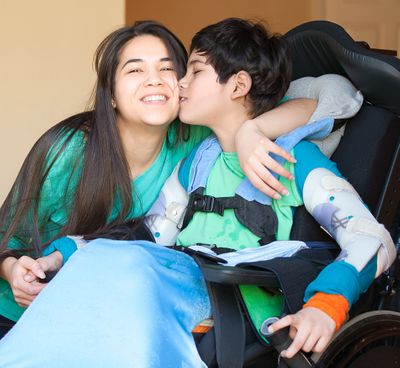Guardianships & Conservatorships for Minors & Incapable Adults
Call Vernon & Associates, P.C. to Learn More
Guardianships & Conservatorships
Do you have a family member who is incapable of making decisions regarding their health and financial affairs?
Our attorneys at Vernon & Associates, P.C. in Long Island can help you choose a court-appointed individual or professional fiduciary designated to make personal and medical decisions, or who can handle the financial planning matters for your loved one who is unable to do so on their own. Guardianships and conservators are utilized for both minors and adults who are incapable of making sound decisions regarding their health or finances. Keep reading to learn more about this process and how our attorneys at Vernon & Associates can give you the help you need.

Why Choose an Appointed Guardian or Conservator?
At Vernon & Associates, P.C., We:
Advocate for Our Community
Give You the Legal Support You Need
Have More Than Two Decades of Experience
Have a Legal Team You Can Trust
Guardianships vs. Conservatorships
Guardianships and Conservatorships are utilized for children with significant cognitive disabilities who are approaching their 18th birthday. They are also utilized when an adult is no longer capable of making decisions regarding their healthcare or finances due to an illness or injury. If an adult experiences a significant medical event such as a brain injury, stroke, or with the diagnosis of Alzheimer’s disease or dementia, a guardian or conservator may be necessary. Keep reading to learn more about the differences between a Guardian and a Conservator, and contact Vernon & Associates, P.C. to schedule a consultation today.

Guardianship
An appointed guardian is responsible for the health, safety, and residential placement of a protected person. In short, a guardian is responsible for making sure the protected person is getting the care they need. This includes:
Medical care coordination
Consent to all medical procedures, including tests, surgeries, and medication
Residential placement based on needs and abilities
Additional services including home health care, cooking services, cleaning services, therapies, & nursing care
A guardian is not responsible for any needed services or medical treatments for the protected person from their own funds, nor is the guardian generally liable for the actions of the protected person.

Conservatorship
A conservator is responsible for the protected person’s financial matters. This includes:
Collecting income or benefits
Paying bills
Managing financial accounts and investments
Budgeting
Preparation of taxes
A conservator is not responsible to pay for any needed services or medical treatments for the protected person from their own funds, nor is the conservator generally liable for the actions of the protected person.
Who Can Serve as Guardian or Conservator?
One person or professional fiduciary can serve as both guardian and conservator for a protected person, or different people can serve in each role. Who serves in these roles is a decision typically made between the family and their attorney based on the protected person’s estate planning documents.
Practice Areas
Schedule a Consultation Today
Our attorneys at Vernon & Associates, P.C. are ready to help you get a guardian or conservator in place for your family member or loved one. Get in touch with us today to schedule a consultation or to find out more about how we can help.
